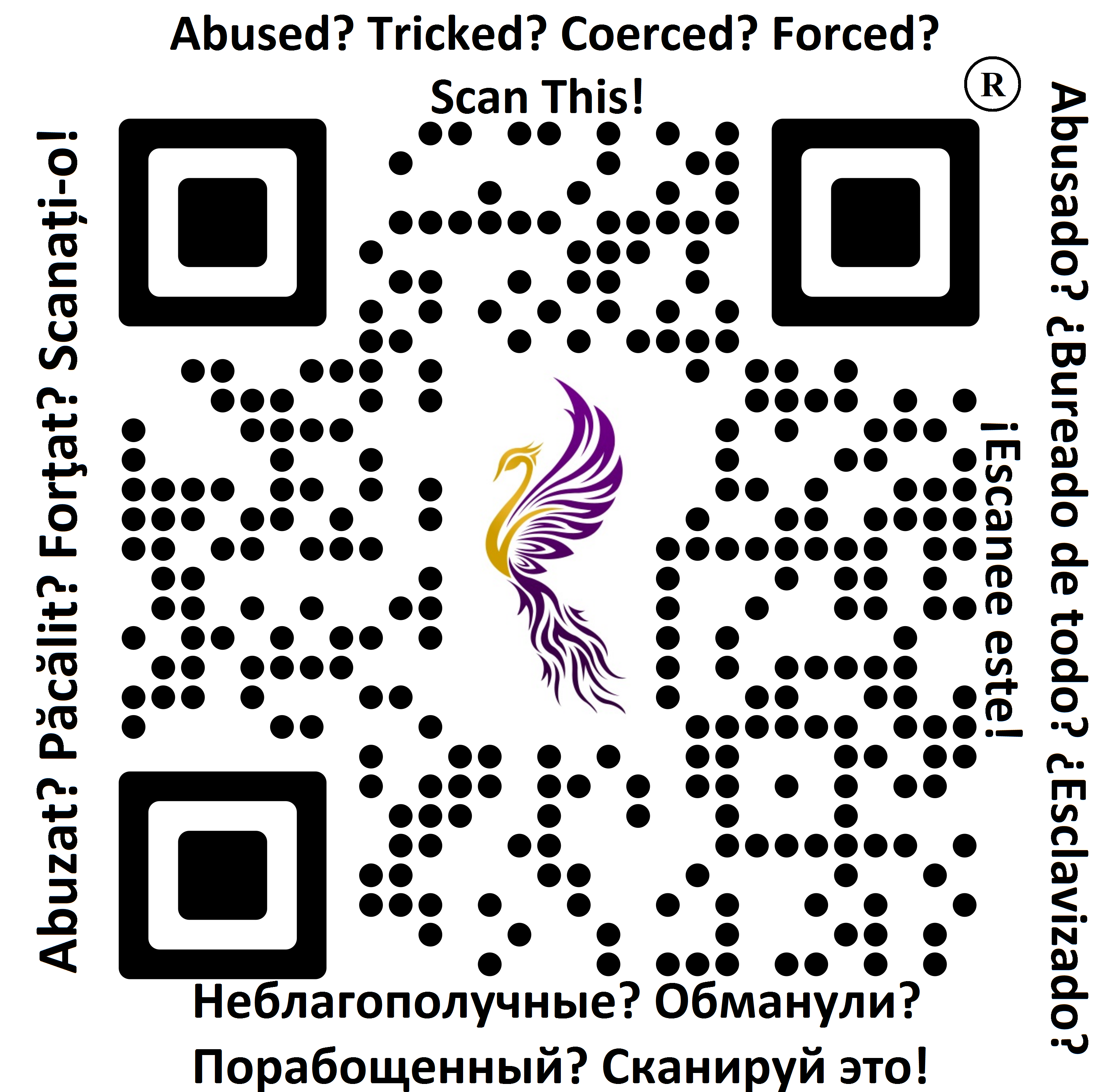Twentyfour-Seven’s Reimagined Anti-Trafficking QR Code® Limits Corporate Liability While Making Human Trafficking Reporting Accessible to Everyone
A QR Code can limit a corporation's liability under the trafficking victims protection act; while improving reporting and evidence abilities for police.

Fort Myers, FL, October 04, 2021 --(PR.com)-- In response to reports of human trafficking made using the Anti-Trafficking QR Code® and concerns raised by corporations, who are now being held criminally and civilly liable under the Trafficking Victims Protection Act, Twentyfour-Seven has updated numerous capabilities on their Anti-Trafficking QR Code®.
Updated capabilities include but are not limited to:
1) The ability to capture an exact location when a report of human trafficking is made;
2) A way for victims to ask for help without them needing to self-identify as a victim;
3) The ability to submit pictures or other documentation when making a report;
4) An option for the report of human trafficking to be sent directly to local law enforcement as well as a local anti-trafficking NGO.
Ms. Tsvetelina Thompson, a survivor of sex trafficking and managing director of Twentyfour-Seven, said, “These changes are a small part of a multitude of improvements over the next year. It is important for us to recognize victims interact at every level in society; they are held by an invisible chain. If a company fails to recognize that chain and profits off a victim, under the TVPA they are civilly and criminally liable. Many companies believe if they have anti-trafficking training they are protected. But sadly, they are wrong.”
According to 18 U.S.C § 1595(a), anyone who “should have known” they were profiting from a victim shall be held liable. Ms. Thompson commented, “It is reasonable to assume if you have a corporate anti-trafficking training program, then you should have known the person you failed to identify at your place of business is a victim and therefore you are liable.”
The Twentyfour-Seven goal is to reach as many victims as possible using the code. Corporations, especially those in transportation, hospitality and food service are in a unique position to limit their liability, reach victims and provide potential human trafficking observers with the opportunity to report the crime.
Thus far Twentyfour-Seven has distributed more than 20,000 codes worldwide. “Because of the changes to the Trafficking Victims Protection Act, we are concentrating on increasing the code’s abilities in the United States,” Thompson said. “For less than $100 a year per location, your company can add the QR code to your anti-trafficking governance program. It may help limit your liability, but more importantly it could save a life, and that is the right thing for anyone to do.”
For information on how the Twentyfour-Seven Anti-Trafficking QR Code® can help your business, please contact Twentyfour-Seven at info@twentyfour-seven.org or via phone at +1.210.846.0898.
Updated capabilities include but are not limited to:
1) The ability to capture an exact location when a report of human trafficking is made;
2) A way for victims to ask for help without them needing to self-identify as a victim;
3) The ability to submit pictures or other documentation when making a report;
4) An option for the report of human trafficking to be sent directly to local law enforcement as well as a local anti-trafficking NGO.
Ms. Tsvetelina Thompson, a survivor of sex trafficking and managing director of Twentyfour-Seven, said, “These changes are a small part of a multitude of improvements over the next year. It is important for us to recognize victims interact at every level in society; they are held by an invisible chain. If a company fails to recognize that chain and profits off a victim, under the TVPA they are civilly and criminally liable. Many companies believe if they have anti-trafficking training they are protected. But sadly, they are wrong.”
According to 18 U.S.C § 1595(a), anyone who “should have known” they were profiting from a victim shall be held liable. Ms. Thompson commented, “It is reasonable to assume if you have a corporate anti-trafficking training program, then you should have known the person you failed to identify at your place of business is a victim and therefore you are liable.”
The Twentyfour-Seven goal is to reach as many victims as possible using the code. Corporations, especially those in transportation, hospitality and food service are in a unique position to limit their liability, reach victims and provide potential human trafficking observers with the opportunity to report the crime.
Thus far Twentyfour-Seven has distributed more than 20,000 codes worldwide. “Because of the changes to the Trafficking Victims Protection Act, we are concentrating on increasing the code’s abilities in the United States,” Thompson said. “For less than $100 a year per location, your company can add the QR code to your anti-trafficking governance program. It may help limit your liability, but more importantly it could save a life, and that is the right thing for anyone to do.”
For information on how the Twentyfour-Seven Anti-Trafficking QR Code® can help your business, please contact Twentyfour-Seven at info@twentyfour-seven.org or via phone at +1.210.846.0898.
Contact
Twentyfour-Seven Inc.
Tsvetelina (Lina) Thompson
210-846-0898
www.twentyfour-seven.org
Tsvetelina (Lina) Thompson
210-846-0898
www.twentyfour-seven.org
Categories
